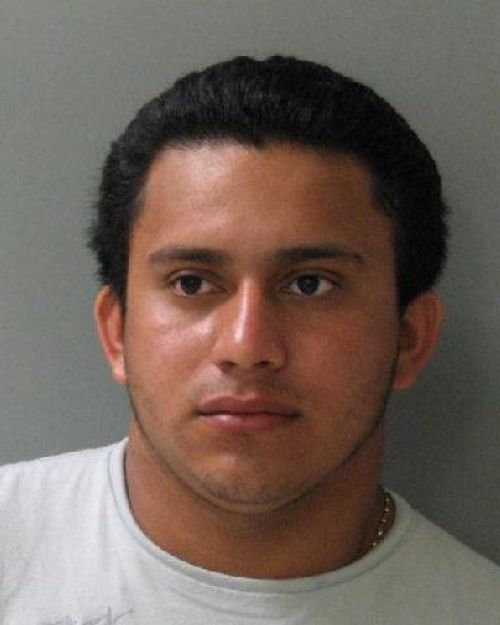Houma actress lands ‘Annie’ role
February 26, 2013
3 allegedly lured man to his death
February 26, 2013Jeremiah Wright still cannot rationally defend himself against the charge that he beheaded his 7-year-old son, so he will be returned to a state mental-health facility where doctors will again attempt to restore his competency to stand trial, a Thibodaux judge ruled last Tuesday.
While establishing that Wright understands the nature of the charge against him and can help to an extent in his defense, District Judge John LeBlanc listed four elements of Louisiana Supreme Court-derived criteria used to determine a suspect’s mental capacity to stand trial that he said Wright does not meet.
“In light of all of the evidence and testimony, the Court finds that Jeremiah Lee Wright does not have the ability to maintain a consistent defense, to listen to witnesses and inform his lawyers of distortions or misstatements, to make simple decisions in response to well explained alternatives, and to testify in his own defense, if necessary,” the ruling reads.
District Attorney Cam Morvant II said he respects LeBlanc’s ruling but his office hasn’t made the decision as to whether or not it will appeal the decision.
Wright, 31, confessed to police that he decapitated and dismembered his 7-year-old special-needs son on Aug. 14, 2011 at their Thibodaux home. He has not entered a plea on his first-degree murder charge.
Two months after the murder LeBlanc ruled that Wright was mentally unfit to stand trial based on the findings of a court-appointed sanity commission. Wright was remitted to the Eastern Louisiana Mental Health System’s forensics division in Jackson, La.
In lieu of the latest ruling, criminal proceedings against Wright will again be stalled indefinitely. The suspect will be returned to ELMHS, where he spent nine months before doctors discharged him, accused him of exaggerating symptoms and declared him fit to stand trial.
If ELMHS doctors again conclude Wright is competent to proceed, another contradictory hearing will be held.
There is no timeline on the restoration process. The duration of Wright’s first stay at ELMHS was roughly three-times the average 70-90 days that patients take to clear the hospital’s competency restoration program, according to the hospital’s chief of staff John Thompson.
“I’ll be prepared to go back and do it again,” Morvant said. “It is what it is. It’s not something that I had control over. It’s not something that I hired all the experts to present to the court. The experts were kind of given to me by the hospital, and we had the hearing.”
Prior to reading the judgment in full, Wright’s principal defense attorney said the ruling runs parallel with his argument.
“Mr. Wright’s understanding of the proceedings is far from perfect, but the focus of our complaint was on the second area of concern, his ability to rationally assist counsel,” said Kerry Cuccia, director of the Capital Defense Project of Southeast Louisiana. “It was pretty obvious to me that Mr. Wright was not able to rationally assist counsel. … My experience with him told me he had not been restored to competency. Once we got the complete records, we found things that supported our position.”
Much of the expert testimony over the course of a six-day hearing to determine Wright’s competency focused on Wright’s so-called delusion that his son was an inanimate object and that Wright was the subject of a social experiment.
Defense experts testified that Wright’s delusion prevents him from maintaining a consistent defense and making rational strategic decisions related to his case. State witnesses said that delusion does not exclude competence and testified that Wright has a factual and rational understanding of the criminal charge he faces.
The competency hearing was held six months after Wright’s release from ELMHS.
Mark Wilson, a psychiatrist who examined Wright the entire nine months, and Glenn Ahava, a psychologist who examined Wright for four months, discharged Wright the first time and co-authored a report.
The report was perhaps the keystone piece of evidence declaring Wright fit for trial, as the doctors who released it were ostensibly under no pressure to send the suspect back into the justice system.
Wright’s defense attorneys with the Capital Defense Project of Southeast Louisiana, Cecilia Bonin and Mildred Methvin attacked the doctors’ opinions, presentation of evidence and credibility through cross-examination.
LeBlanc referenced similar concerns throughout his 27-page judgment.
“Perhaps out of an abundance of caution they went through the Bennett criteria (the court-derived guideline to determine competency) and made findings that he could assist his counsel,” LeBlanc said of Ahava and Wilson. “However, the many issues, inaccuracies, omissions, and concerns regarding their testimony and their findings in the Competency Restoration Report affect their credibility and bear negatively on the weight of their opinions.”
The judge notes that testing stopped after Wright supposedly broke from his delusion in a conversation on July 5, 2012 with Ahava, who reported Wright referred to Jori as his “son” and “a real person.”
“This conversation, in conjunction with Dr. Ahava’s opinion that Wright never had a major mental illness, was sufficient to convince Dr. Ahava that Wright had been restored to competency,” LeBlanc wrote.
But even the prior tests the doctors conducted where interpreted incorrectly, LeBlanc ruled, and discarded when the ELMHS report was written. Wilson testified that he considered the tests when reaching his conclusion although he didn’t denote their weight in the report.
Ahava gained employment with ELMHS in March 2012, three months after Robert Storer – the psychologist originally overseeing Wright in the restoration process – left the hospital.
One of the tests heavily scrutinized was the Personality Assessment Inventory Storer administered in December 2011. Storer declared this PAI invalid because he said Wright had responded too positively, hiding symptoms and “faking good.”
Despite the test being declared invalid, Wilson used the results in his bi-weekly progress notes regarding Wright’s rehabilitation. While this in itself is questionable, according to the defense, counselors also alleged that he incorrectly stilted the invalidated results in his notes.
Wilson first mentioned the results without qualifying them as invalid in his Jan. 6, 2012 progress note, writing they showed “no obvious evidence of psychosis.” He did not note that it produced no evidence that Wright was not psychotic, and he uses the results in the same manner in each progress note from Feb. 2, 2012 through April 16, 2012.
Storer disagreed with Ahava’s validation of the tests and said that using the PAI results in that manner “absolutely is not” a correct reading.
LeBlanc said the progress notes citing that PAI “contained that erroneous declaration.”
LeBlanc went on to write: “Throughout the entire process, Dr. Wilson never changed his view that Wright did not have a mental disorder. He testified that, in late May, 2012, they were moving toward a determination of incompetency until May 31, when Dr. Ahava re-scored Dr. Storer’s original PAI.”
LeBlanc also noted that Ahava had a difficult time establishing a rapport with Wright, unlike all other witnesses who had contact with the suspect, and that the doctor’s report contradicted the hospital’s chief of staff, who said diagnosing and treating mental illnesses take precedence over restoring competence.
“The fact is, that after nine (9) months of unsuccessful restoration services, it took Dr. Ahava and Dr. Wilson eleven (11) days to refer Wright back to the Court as ‘Restored to Competency,’” LeBlanc wrote.
Although he will be remitted to the same hospital, Wright’s principal defense attorney said he believes the ELMHS administration will ensure Wright receives a “fair and objective evaluation.”
“That being said, we’re going to stay involved and keep informed of what is taking place,” Cuccia said.
Morvant, echoing his closing argument, stressed that the science is subjective, adding that he still confident the hospital’s doctors can restore Wright for trial.
“I’ve been dealing with that hospital as a prosecutor off and on for almost 30 years now,” Morvant said. “The fact that the judge in this particular case was not necessarily impressed with two doctors over there, it doesn’t make a statement to the hospital as a whole.”
A memorial is held for slain boy Jori Lirette in 2010. A judge ruled that his alleged murderer is not fit to stand trial.












